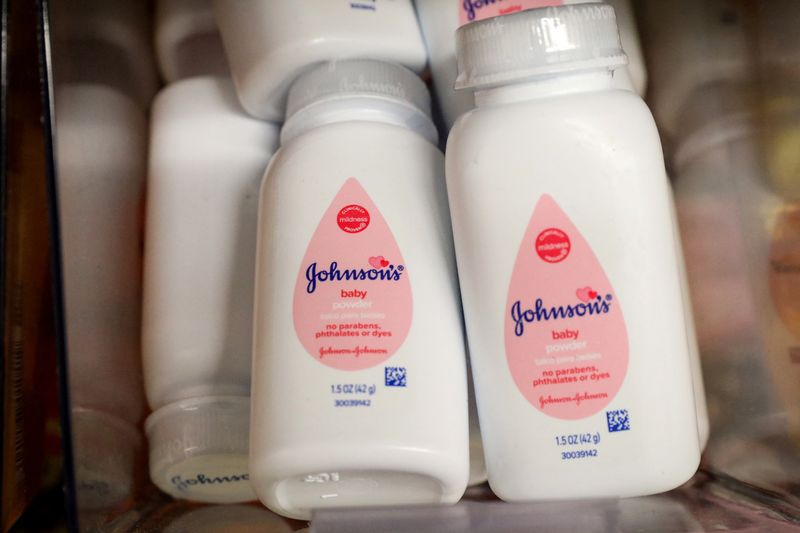By Brendan Pierson
(Reuters) - A new judge has been assigned to oversee tens of thousands of lawsuits in New Jersey federal court against Johnson & Johnson (NYSE:JNJ) over its talc products, two weeks after an appeals court rejected the company's plan to offload the claims into bankruptcy.
U.S. District Judge Michael Shipp, based in Trenton, will take over the long-running litigation from former Chief District Judge Freda Wolfson, who retired from the bench on Feb. 1, according to an order filed on Monday. The cases, numbering more than 38,000, had been on hold since October 2021, when a J&J subsidiary newly created to hold the talc liabilities filed for bankruptcy.
Plaintiffs have said that J&J's Baby Powder and other talc products contain asbestos and caused cancer.
J&J maintains its consumer talc products are safe and confirmed through thousands of tests to be asbestos-free. The company has said it will challenge the ruling by the Philadelphia-based 3rd U.S. Circuit Court of Appeals dismissing the bankruptcy, which it said was intended in good faith to resolve talc claims efficiently and equitably.
Shipp, 57, was appointed to the bench by Democratic President Barack Obama in 2012. He has presided over a separate lawsuit against J&J, in which an emeritus Harvard Law School professor is seeking to force the company to put his proposal requiring shareholders to bring any securities claims through private arbitration up for a shareholder vote. Shipp dismissed the most recent version of the lawsuit, which is now on appeal.
He has overseen several pharmaceutical industry cases including patent disputes and a class action accusing Merck & Co Inc of discriminating against pregnant employees, which settled in 2018.

Before the 2021 bankruptcy filing, J&J had faced costs of $3.5 billion in verdicts and settlements stemming from the talc litigation.
A 2018 Reuters investigation found that J&J knew for decades that asbestos, a known carcinogen, was present in its Baby Powder and other cosmetic talc products. The company stopped selling Baby Powder in the United States and Canada in May 2020, in part due to what it called "misinformation" and "unfounded allegations" about the talc-based product.